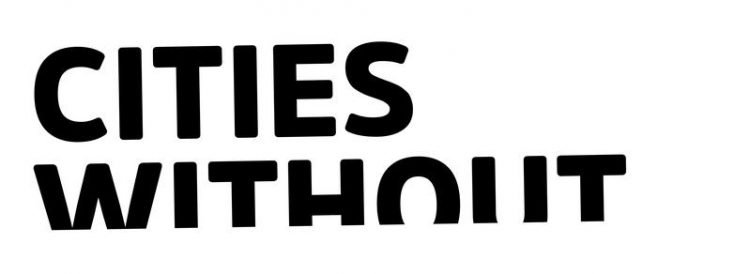What will the digital city of the future look like? City Science Summit on 1st and 2nd October 2019 in Hamburg

City Science Summit "Cities without"
The City Science Summit 2019 is organized by the CityScienceLab of the HafenCity University Hamburg (HCU) in cooperation with the Media Lab of the Massachusetts Institute of Technology (MIT), Boston, USA and the City Science Network.
The conference is open to the public and free of charge. Registration is mandatory: www.citysciencesummit.org
The City Science Summit develops sustainable solutions for the future design of diverse, economically attractive and livable urban spaces. In this context, the conference will address concrete questions about the digital future and discuss how the quality of life in metropolis and their surroundings can be improved on a worldwide scale.
The conference title “Cities without …” plays with negation as a positive figure of thought. For example, how could transport function without cars, administration without bureaucracy, economies without money, education without schools or participation without barriers?
The City Science Summit will open at the Elbphilharmonie with a keynote by Sir Norman Foster (architect) and Nicolas Negroponte (founder of MIT Media Labs) on informal developments in cities. A subsequent discussion with Kent Larson (MIT, City Science Group) and Gesa Ziemer (CityScienceLab) will deepen the topic.
The keynotes will be followed by input lectures on the central topics of the City Science Summit. Other prominent speakers include Michael Uwemedimo (Collaborative Media Advocacy Platform, Port Harcourt/Nigeria) and Maja Göpel (WBGU, UNESCO).
The second day of the conference will focus on mobility and logistics, informal urban processes, municipal citizen participation tools and digital dialogue processes in sessions and workshops. Building Information Modelling, data visualization in Digital Twins, interactive data-based city models and maps, agent based modelling, ICT tools for migration and integration and the UN goals for sustainable development are also on the agenda.
In addition to the main conference program, the City Science Summit serves as a networking meeting for representatives from urban planning, architecture, cultural sciences and the humanities, informatics and engineering, as well as executives of global companies. The City Science Summit also offers event formats specially tailored to young scientists.
Partners and Sponsors:
DFG Deutsche Forschungsgemeinschaft
ahoi.digital Allianz Hamburger Hochschulen für Informatik
Hamburger Hochbahn AG
HHLA Hamburger Hafen und Logistik AG
About CityScienceLab at HCU Hamburg:
The CityScienceLab (CSL) of the HCU develops digital solutions for current and future challenges in urban areas, municipalities and metropolitan regions. Located at the interface between urban development and digitization, the CSL is researching the digital future of a modern urban society in interdisciplinary and international teams.
Media Accreditation/Opening Event in the Elbphilharmonie:
If you want to accreditate yourself for the opening event in the Elbphilharmonie (1st October, 1 pm), please send an e-mail to hcu-kommunikation@vw.hcu-hamburg.de until the 15th of September.
We can send you a Press Kit upon request.
Further information on the conference program, the locations as well as participation and registration can be found on the website www.citysciencesummit.org.
Sarah Adam, CityScienceLab
+49 (0)40 42827 5333
sarah.adam@hcu-hamburg.de
Media Contact
All latest news from the category: Event News
Newest articles

A universal framework for spatial biology
SpatialData is a freely accessible tool to unify and integrate data from different omics technologies accounting for spatial information, which can provide holistic insights into health and disease. Biological processes…

How complex biological processes arise
A $20 million grant from the U.S. National Science Foundation (NSF) will support the establishment and operation of the National Synthesis Center for Emergence in the Molecular and Cellular Sciences (NCEMS) at…

Airborne single-photon lidar system achieves high-resolution 3D imaging
Compact, low-power system opens doors for photon-efficient drone and satellite-based environmental monitoring and mapping. Researchers have developed a compact and lightweight single-photon airborne lidar system that can acquire high-resolution 3D…





















